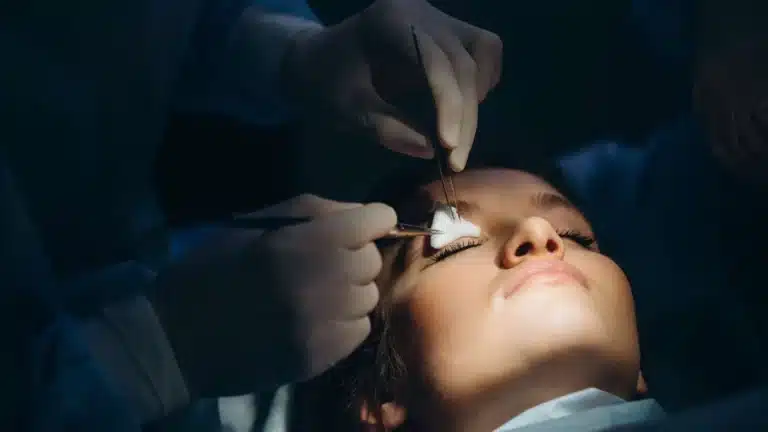Table of Contents
Cataract surgery is one of the most common and effective ways to restore vision for millions of people worldwide. The necessity for this procedure is increasing as the population becomes older. However, because cataract surgery can be expensive, many people find health insurance essential. Does health insurance cover cataract surgery? This blog delves into whether health insurance covers cataract surgery, what influences coverage, and tips to save costs.
Benefits of Cataract Surgery
Cataract surgery improves vision and quality of life by replacing a clouded lens with an artificial intraocular lens (IOL). Technological advancements make the procedure safer and more effective, enhancing daily activities and overall well-being.
Read Related Article: Does Health Insurance Cover Mobility Scooters?
Overview of Health Insurance Coverage
Health insurance coverage for cataract surgery in the US can vary significantly depending on the type of insurance plan, the specifics of the procedure, and the lenses selected. Most insurance plans, including Medicare, cover cataract surgery when deemed medically necessary. However, understanding the details of your coverage is essential to avoid unexpected costs.
When Does Health Insurance Cover Cataract Surgery?
Insurance typically covers cataract surgery when it is deemed medically necessary to restore vision. However, coverage specifics, including lens options and associated costs, may vary.
Medically Necessary Procedures
Health insurance generally covers cataract surgery when it’s medically necessary to restore vision significantly impaired by cataracts, impacting daily activities. Coverage typically includes the cost of removing the cataract and implanting a standard intraocular lens (IOL).
Coverage for Different Types of Lenses
Insurance typically covers standard monofocal IOLs, which correct vision at one distance. However, advanced lenses like multifocal or toric IOLs, which address multiple distances or astigmatism, often require additional out-of-pocket expenses, as they may not be fully covered.
Factors Affecting Cataract Surgery Coverage
Several factors can influence cataract surgery coverage, including provider network status and your insurance plan’s specific cost-sharing requirements. Understanding these factors is key to managing potential out-of-pocket expenses.
In-Network vs. Out-of-Network Providers
Using an in-network provider for cataract surgery can lower costs and improve coverage, as insurance plans offer better rates with these surgeons and facilities. Out-of-network providers may lead to higher expenses, with insurance covering less or none of the costs.
Copayments, Deductibles, and Coinsurance
Even if your insurance covers cataract surgery, you may still be responsible for copayments, deductibles, and coinsurance. These costs vary depending on your insurance plan. Reviewing your policy to understand what you’ll need to pay out-of-pocket is important. For example, some plans might require a higher copayment for outpatient surgery or have a deductible that must be met before coverage kicks in.
Typical Costs of Cataract Surgery
The typical costs of cataract surgery can vary widely based on location and lens choice, but insurance generally helps reduce these expenses. Patients should be aware of potential out-of-pocket costs for premium lenses, anesthesia, and additional care.
Read Related Article: Will Health Insurance Pay for a Swimming Pool?
Average Costs with Insurance
The average cost of cataract surgery can vary depending on location, the surgeon’s expertise, and the type of lens implanted. With insurance, the costs can be significantly reduced. For patients with Medicare, the average out-of-pocket cost for cataract surgery ranges from $200 to $800 per eye, depending on the specifics of their coverage.

Out-of-Pocket Expenses
Out-of-pocket expenses can include the cost of premium lenses, anesthesia, and follow-up care. Patients should also consider additional costs if complications arise or require more than the standard postoperative care. Understanding these potential expenses can help budget the procedure.
How to Verify Your Coverage
To ensure comprehensive coverage for cataract surgery, review your insurance policy thoroughly and directly contact your provider. This will clarify coverage details, pre-authorization needs, and any out-of-pocket expenses.
Checking Your Insurance Policy
Before scheduling cataract surgery, it’s essential to verify your insurance coverage. Review your policy documents to understand what is covered and what isn’t. Look for details on cataract surgery, including the types of lenses covered, in-network requirements, and pre-authorization requirements.
Contacting Your Insurance Provider
Another important step is to contact your insurance provider directly. They can provide detailed information about your coverage, including any pre-surgery requirements, such as obtaining a referral from your primary care physician or getting pre-authorization for the surgery. They can also clarify what your out-of-pocket costs might be.
Steps to Get Cataract Surgery Approved
To get cataract surgery approved, ensure pre-authorization is obtained and all required documentation is submitted. Accurate and timely filing of your insurance claim is crucial for avoiding delays and securing coverage.
Read Related Article: Does Health Insurance Cover Chiropractic Care?
Pre-Authorization Requirements
Some insurance plans require pre-authorization before they will cover cataract surgery. This means that your surgeon must submit a request to your insurance provider detailing the procedure’s medical necessity. You must obtain pre-authorization to avoid your claim being denied, leaving you responsible for the full cost of the surgery.
Filing Claims Successfully
After the surgery, it is crucial to ensure your insurance claim is filed correctly. Work closely with your surgeon’s office to ensure all necessary documentation is submitted, including the surgeon’s notes, billing codes, and other required information. Prompt and accurate filing can help prevent coverage delays.
Tips for Reducing Cataract Surgery Costs
To reduce cataract surgery costs, choose in-network providers for better coverage and lower out-of-pocket expenses. Also, explore financial assistance options through hospitals, clinics, or charitable organizations to help manage any remaining costs.
Using In-Network Providers
To minimize costs, always choose an in-network provider. This not only ensures that more of the surgery is covered but also reduces your out-of-pocket expenses. In-network providers have pre-negotiated rates with your insurance company, making the procedure more affordable.
Exploring Financial Assistance Options
If your insurance doesn’t cover the full cost of cataract surgery, consider exploring financial assistance options. Some hospitals and clinics offer payment plans or financial assistance programs for patients facing high out-of-pocket costs. Additionally, charitable organizations or government programs may provide aid for necessary medical procedures like cataract surgery.
Conclusion
Health insurance often covers cataract surgery; however, the exact amount of coverage depends on your plan. You may lower the cost of cataract surgery by being aware of your insurance policy, confirming coverage, and taking some cost-cutting measures.
Always get advice from your insurance company and healthcare practitioner to be sure you understand all the costs associated with the treatment. If you have difficulty finding good coverage that can cater to your needs, check out Beem. The AI-powered Smart App partners with top insurance providers across the country to bring personalized coverage that suits all your needs. Download the app here to know more!
FAQs for Does Health Insurance Cover Cataract Surgery
Is cataract surgery covered by health insurance?
Yes, cataract surgery is typically covered by health insurance when it is deemed medically necessary. This usually includes the cost of the surgery and a standard intraocular lens.
What should I do if my insurance doesn’t cover the full cost of cataract surgery?
If your insurance doesn’t cover the full cost, consider using in-network providers, exploring payment plans, or seeking financial assistance from charitable organizations.
How can I find out if my insurance covers advanced lens options?
Review your insurance policy or contact your provider to determine if advanced lens options, such as multifocal or toric lenses, are covered. If they are not, you may need to pay the difference out-of-pocket.















































